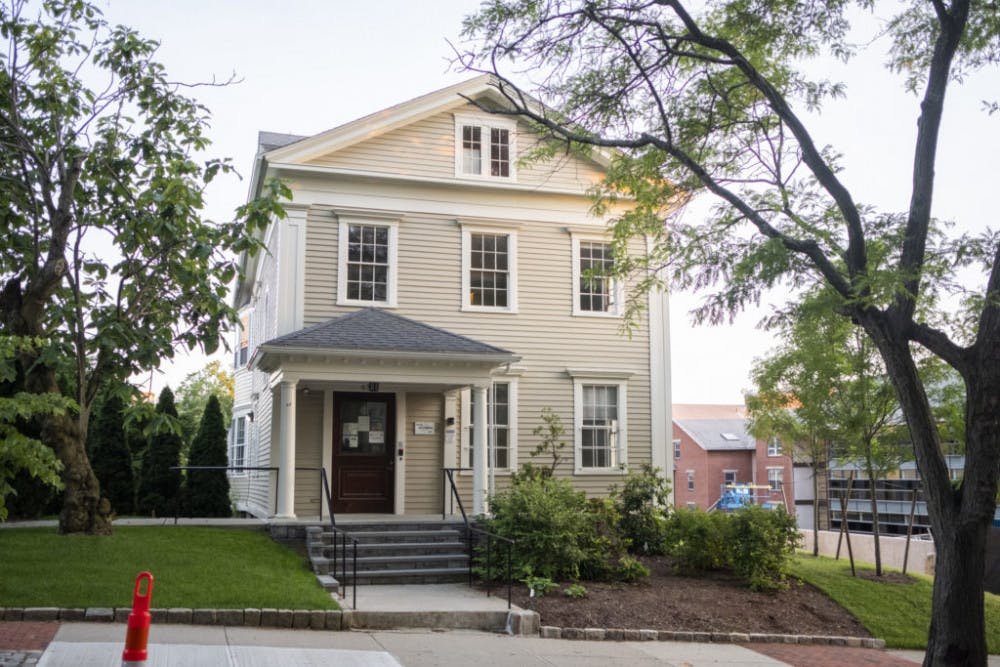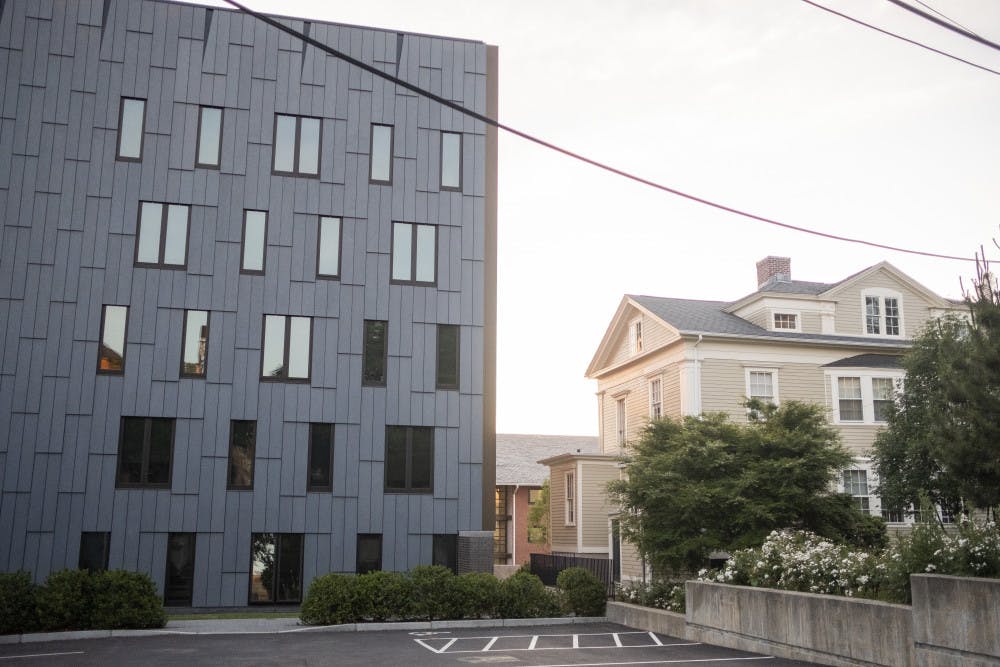Updated 11:45 a.m., June 17, 2020
The Rhode Island School of Design plans to open its campus for Fall 2020 in a “de-densified” model, according to a community-wide email sent by RISD President Rosanne Somerson Monday afternoon.
Core studio and shop-based classes will be held in person while other courses will be offered online or in a hybrid version. At the beginning of the semester, students will have to quarantine for 14 days starting Sept. 3, one week before classes begin. Instruction will take place online from Sept. 10, one week into the quarantine, and will transition to in-person learning a week later — beginning on Sept. 17, according to an update to RISD’s COVID-19 website.
While the de-densified model will reduce campus occupancy by having some courses take place online and having employees work from home "wherever possible," it still allows for all students who are able to return to RISD's campus to be present at the same time by reconfiguring spaces in order to maintain social distancing. Students who are not able to return to campus in the fall will be accommodated so that they can resume their programs of study online.
Shared and common living space will be reconfigured to allow social distancing and all spaces will limit occupancy. Additionally, when on campus, students and staff will have to remain six feet apart and will be required to wear cloth face masks — which RISD will ensure are available to students — at all times. Classes will take place with 20-30 minute intervals between them to allow spaces to be cleaned before the next class begins. Academic and co-curricular activities online will be offered for students during quarantine “to build community” as well as a virtual orientation during the first week of quarantine for first-years.
RISD has also made adjustments to housing norms to encourage social distancing. The majority of students will be offered singles, while 49 triples or quads will be converted to doubles with a maximum of four students allotted to a bathroom. Students will schedule their move-in day over a period of four days and will only be allowed to bring one family member to help move in.
To prepare for the potential of infected students and staff, RISD will create a respiratory clinic located in Thompson House on Angell Street to serve as a testing center. RISD expects that the clinic will conduct around 500 tests per week. Students with respiratory symptoms will be a priority for testing, followed by students who “self-screen positive” and asymptomatic students who came into close contact with someone who tested positive. RISD will conduct contact tracing using the technology that the State of Rhode Island developed and will not be conducting randomized regular tests of the student body.
[caption id="" align="aligncenter" width="650"]

Students who test positive and do not require hospitalization will be quarantined in one residential area with the capacity to host 19 students at a time. These students will have a single room and RISD will “come as close as it can” to providing one bathroom per quarantined student. During their quarantine time, students will be delivered meals and will receive check-ins from Health Services and Counseling and Psychological Services. Students will also receive academic accommodations to support them in continuing their studies online.
While some faculty and staff positions will be designated as on-campus, employees who are able to continue working at home throughout the semester will continue to do so. If a staff member gets infected, they will have to quarantine at home if hospitalization is not required.
Somerson wrote that the decision-making for RISD's operations in light of the pandemic continues to be guided by three goals: the health and safety of the community, academic integrity and financial viability. The plan for the fall was formulated by consulting with health experts and state and peer institutions across the country, as well as taking diversity and equity into consideration, she wrote.
“We are working to balance in-person instruction where it is essential with a balance of online learning for courses that do not rely on studio facilities, with all forms of campus engagement centered around health and safety,” Somerson wrote.
Somerson also announced that RISD is also making contingency plans in case they have to transition to full remote learning and teaching at some point during the semester. Still, Somerson wrote that RISD is “encouraged by positive trends in recent weeks as the rate of new cases of COVID-19” declines as Rhode Island moves into Phase II of its reopening plan.
Owen Rival ’21, a rising senior and a Residential Assistant at RISD, said he was “pretty shocked” that RISD announced a de-densified model for reopening considering the current situation of the virus in the United States. Still, Rival stated that he is happy with RISD’s decision and believes that they will do their best to ensure a safe reopening of the campus.
Rival stated that his “biggest fear” with campus reopening would be a second wave of cases forcing RISD to shut down its on-campus operations again, but he believes that is not a problem that RISD can directly solve.
“It’s all external things that make me feel unsafe, nothing that RISD can control. … A threat of a second wave is very much out of their hands” Rival said.
Thanksgiving break will still take place from November 26-27 and a two-day spring break will take place from March 29-30 of 2021. On both holidays, students will be “strongly discouraged” from traveling to any location, and on-campus programming, including a Thanksgiving meal, will be offered. In January, students will have to follow the same quarantine measures as will have been mandated in the Fall when arriving on campus.
In addition, in-person Wintersession courses for 2021 are canceled in order to reduce risks related to COVID-19 and the winter flu season. Students will be allowed to stay in on-campus dorms, but classes will all be held remotely.
The only Wintersession courses not subject to this rule are “special make-up courses” that will be offered in-person for students who cannot be on campus in the fall. These students will also have to follow the same quarantine guidelines as students who arrive in the fall.
When Brown shut down its in-person operations and moved to online instruction March 12, RISD announced that they would do the same. On May 18, RISD announced that they were working with two scenarios for the Academic Year of 2020-2021: a remote fall or a de-densified campus.
Brown has yet to announce its plans for the Academic Year of 2020-2021 but the administration has announced that it is considering three different scenarios: a regular semester, a de-densified tri-semester system or a remote fall semester. President Christina Paxson P’19 announced that a decision will be released no later than July 15.
Cross-registering with Brown for RISD students will only be available in the fall semester — and not during Wintersession or the spring. While some exceptions will be made for Dual degree students to allow for the continuation of their studies, the general limitation of cross-registration is largely because of “anticipated deviation” in the academic calendars of both institutions.





